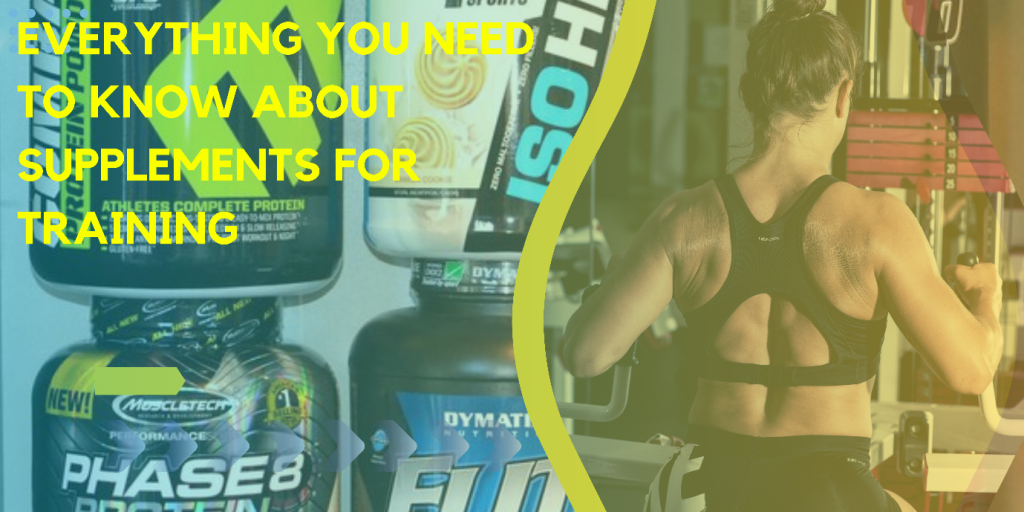
The Complete Supplement Guide for When You Are Training
Supplements are often considered useful only for those partaking in weight training. However, there are different types of supplements available for everyone regardless of their age. These range from dietary supplements to pre-workout supplements.
Generally, training supplements are used to achieve peak performance, explode muscle growth, or improve fat loss. Getting the right supplements for your training needs is crucial in supporting your training journey. In this comprehensive guide, we’ll break down some key insights on different types of supplements. Hopefully, you’ll make some informed choices on your training journey.
Let’s dive right in!
Multivitamins
Generally, multivitamins ensure that your body gets all the nutrients and vitamins it needs. It is recommended to take multivitamins before starting any training program. Some vitamins may be difficult to obtain from just food alone.
The best time to take multivitamins is in the morning after you have had breakfast and plan to work out during the day. It is not recommended to take multivitamins immediately after or before training.
For those doing weight training, multivitamins can help prevent the depletion of certain vitamins and minerals needed for muscle growth. However, keep in mind that multivitamins are taken more to prevent a deficiency of certain minerals rather than promoting muscle growth.
Are you a student who desires to train but can never find enough time to hit the gym? A reliable essay writing service can help lighten your workload. Professional writers can help you to research and reference your work. They can also create paper outlines and samples that can help you to improve your work. More on that later.
Specialty Vitamins
Specific vitamins and minerals assist in certain body functions. For example, you can focus on B vitamins if you want to improve your cell energy metabolism. Vitamins C and E are useful when it comes to antioxidant protection. This helps your body to recover from exercise-induced cell damage.
On the other hand, Vitamin D helps to support healthy bones and promotes protein synthesis. It might not be possible to get all your Vitamin D from diet alone, although fatty fish such as tuna and salmon, beef liver, and egg yolk are good sources.
Taking your supplement regimen to the next level involves understanding your specific needs. Specialty vitamins, identified through blood work and consultation with a physician, offer targeted nutrition.
Protein Powder
Protein is everything when it comes to muscle repair and growth, and maintaining muscle mass. For those aged 14-19 and beyond, protein powder becomes a valuable addition due to increased protein requirements for muscle building.
The key types of protein supplements include whey protein, casein, and plant-based protein powders. Whey protein is considered a complete protein because it contains all essential amino acids. Whey is important for fuelling muscles during resistance training and is especially important for muscle repair during recovery.
Casein protein is important for slow protein release over time. Thus, it is useful during recovery and is often taken before bed.
Creatine
Creatine is rich in phosphate and is used as a high-energy supplement. It improves the circulation of Adenosine Triphosphate which is the body’s immediate energy source for quick, intense bursts of energy. This is important if you’re lifting weights or are sprinting.
Combined with other supplements, creatine can also aid better cell hydration and skeletal muscle protein synthesis.
Omega-3s
Omega-3 supplementation has a wide range of health benefits. Omega-3 can help to reduce post-workout fatigue by reducing inflammation and soreness. Omega-3 fatty acids can improve endurance training and improve cardiovascular and muscle endurance.
Jeff supports the view that it is a key element for maximizing overall health and longevity. Including Omega-3s in your diet can contribute to cardiovascular health and provide a solid foundation for well-being.
Good sleep is also important for those training and it can lead to improved muscle growth, especially for bodybuilders.
Melatonin
Melatonin is another supplement associated with improved sleep cycles and protecting the muscles against oxidative damage. Research conducted has shown that athletes who pop melatonin on average sleep longer than the control group. The subject group also showed better recovery the next morning.
Melatonin is recommended to be used before sleep, supplemented by fruits and other snacks.
SARMs
Selective Androgen Receptor Modulators (SARMs) are a group of supplements that target androgen receptors. They work to increase muscle mass. However, these products have not been approved by the FDA for use in the U.S. They come with the risk of side effects such as stroke and heart attacks.
Glycerol
Dietary glycerol aids in rehydration, especially after an intense workout. Proper foundation is important for cell metabolism and other physiological functions in the body.
Moisture loss during a workout has a high likelihood, therefore, it is important to be properly hydrated throughout the day. Glycerol helps to replenish this lost moisture.
Collagen
Our bodies naturally make collagen, but as we age there is less of it available. Collagen is needed to keep your skin tight and your joints working smoothly. Collagen can help to improve joint performance, but it is unregulated in the U.S. Therefore, ensure to use caution when taking collagen.
Contrary to common beliefs, joint supplements such as collagen aren’t just for older individuals. They are also Jeff stresses their importance in preventing orthopedic issues. This is especially true with increased physical activity among teenagers.
Be on the lookout for any side effects such as diarrhea or stomach discomfort after the use of collagen supplements.
Testosterone Supplements
Testosterone is the primary sex hormone in males. Testosterone deficiency may be due to an underlying medical condition. Doctors can recommend Testosterone Replacement Therapy or TRT.
Testosterone is important for boosting bone density, improving fat distribution and storage, and improving muscle growth. Ashwagandha is a useful testosterone supplement in this regard.
The role of supplements in training and health is not just limited to the gym. As a student, you may be required to write an academic paper on the importance of supplements. Choose expert writing services with great reviews if you need an essay to buy on this topic.
Conclusion
Supplements are an important part of helping athletes and regular folks get the most out of their training. They can improve performance, and overall physiological functions such as metabolism, endurance, and recovery.
For any supplement that is unregulated by the FDA, it is always wise to consult a physician. Every individual is unique, and their nutritional needs vary based on age, health status, and fitness goals. Customize your supplement plan based on expert advice. Commit to a holistic approach that includes a balanced diet and regular exercise. Your journey to optimal health and fitness begins with informed choices and a commitment to your well-being.


























